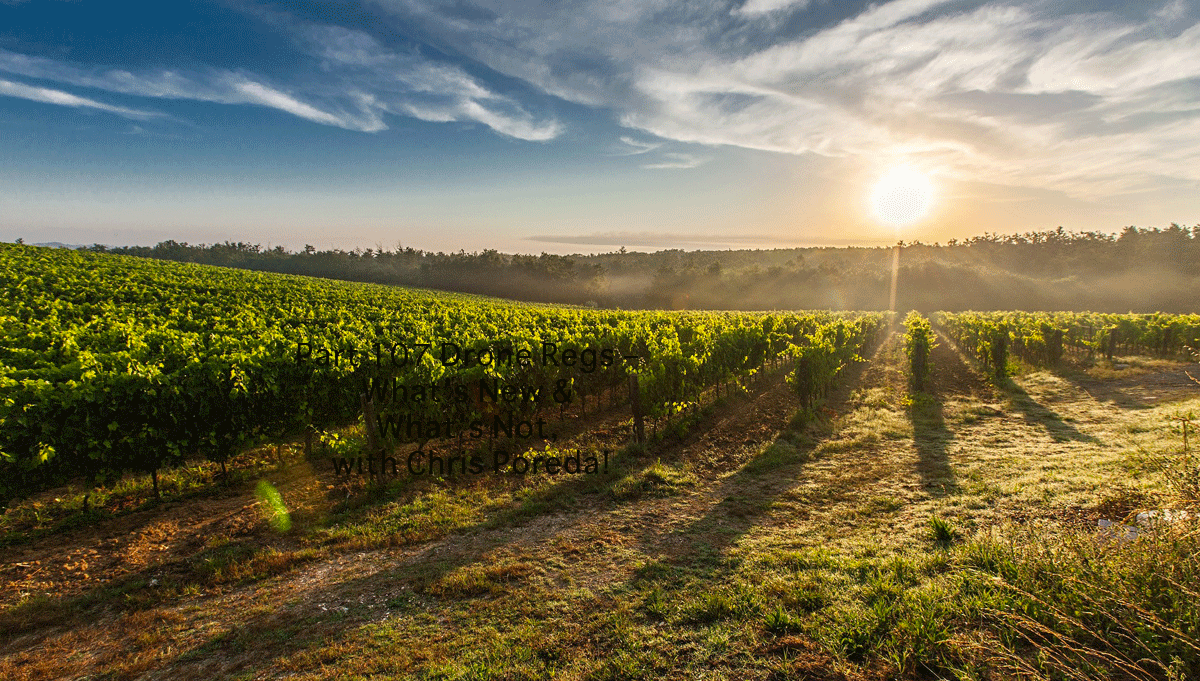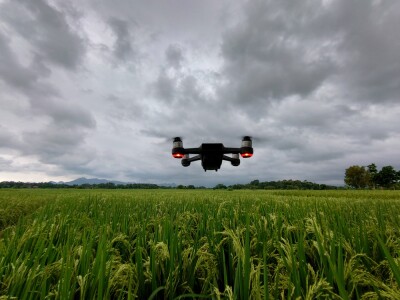While the number of forecasts around how many billions of dollars the drone industry represents continues to rise, predictions around the potential of the technology in agriculture are especially notable. Whether it’s the report that lists the precision agriculture drone market at $2.9 billion by 2021 or $3.69 billion by 2022, it’s safe to say many are bullish around how drones will have an impact on the farm.
Leaving aside legitimate concerns around whether or not these predictions are far too ambitious, few would argue with the notion that drones are set to have a major impact for growers. Exactly what that means remains a sticking point though. How will growers of all different types and sizes leverage the technology? Will drones open up completely new opportunities for farmers, or simply allow them to do something they’ve already been doing that much more efficiently? Recent news from Deveron UAS Corp. and Thompsons Ltd. is an illustration of the commitment two companies have made to directly address these sorts of questions and issues.The multi-year commitment that Deveron came to with Thompsons Ltd. is important for multiple reasons. Deveron is a major drone-based data provider to the agricultural industry in North America, while Thompson’s Ltd. provides leading-edge remote sensing data solutions to its growers. This development will allow the companies to work as collaborative partners so that their efforts can be focused on showing farmers how they can and should be leveraging drone technology. In this manner, they’ll be able to provide essential services and resources to the growers they work with and support around the value UAVs can create on the farm.We’ve previously connected with Norm Lamothe, Head of UAS Agriculture at Deveron UAS, for insight around how professionals are sorting through challenges related to drone adoption in agriculture. The fact that Thompsons Ltd. focuses on providing growers with customized solutions showcases where and how the companies will be able to help those farmers work through such challenges.“Our core focus is to provide a scalable and economic solution to mass drone data collection,” Lamothe told Commercial UAV News. “The hand-off comes to companies like Thompsons that are actually working on doing powerful things with the data that is collected and providing customized solutions to their growers. It is a pretty big vote of approval of our business model – Deveron collects data and everyone else can focus their efforts on the value add of actual data interpretation.”Allowing farmers to focus on farming is a theme that pops up over and over when it comes to the adoption of any new type of technology, and drones are no exception. Many have been enthused by the potential efficiencies and advantages that drones can create on the farm, but the challenges associated with properly adopting that technology cause many to forgo the effort. This development will allow farmers to work with professionals who can help them avoid those challenges and focus on what’s really important to them.With that being the case, what should this news tell agriculture professionals about how they should be looking to embrace or adopt drone technology?“I think it highlights the idea that professionals in agriculture don’t actually need to be concerned with how they scale a data operation and how they build an economically efficient standardized drone fleet,” said Lamothe. “As the data becomes more valuable, we believe more companies will farm out their data collection needs to companies like ours. There truly is a logistical challenge to collecting good, standardized data in multiple regions and operating centres. We hope that this news highlights that Deveron is here to partner with any farming organization that is looking to collect vast swaths of high resolution, on-demand data.”Ultimately, this development should be good news for growers of all types and sizes that want to focus on adopting and leveraging UAV solutions that lead to increases in yield and cost reductions on inputs, rather than work through the logistics of around integrating a new piece of technology.Subscribe
The information you submit will be stored and used to communicate with you about your interest in Commercial UAV News. To understand more about how we use and store information, please refer to our privacy policy.
March 10, 2017
Deveron UAS Corp and Thompsons Ltd. Set to Work Together to Provide Value for Growers





.jpg.small.400x400.jpg)









Comments